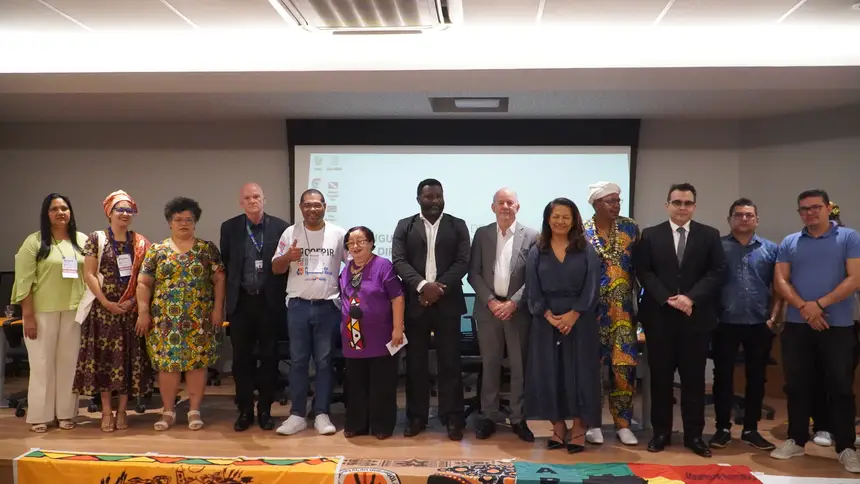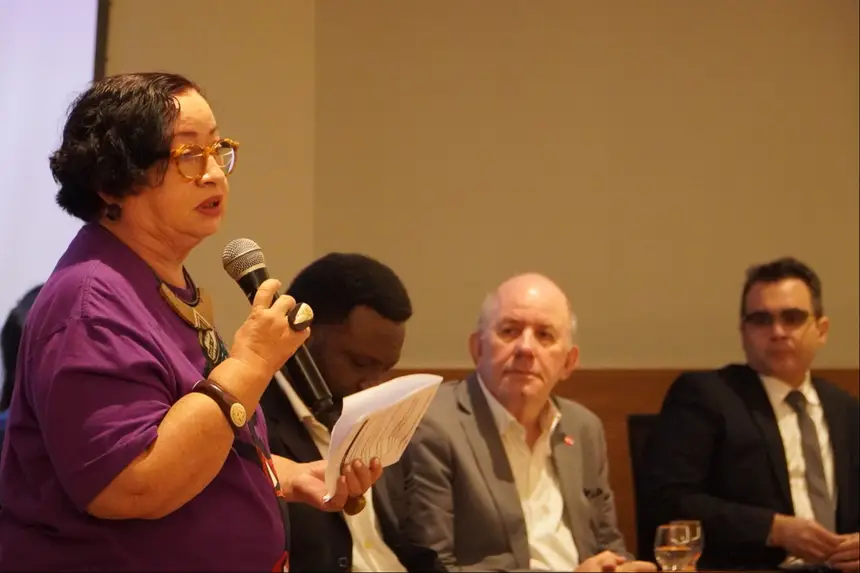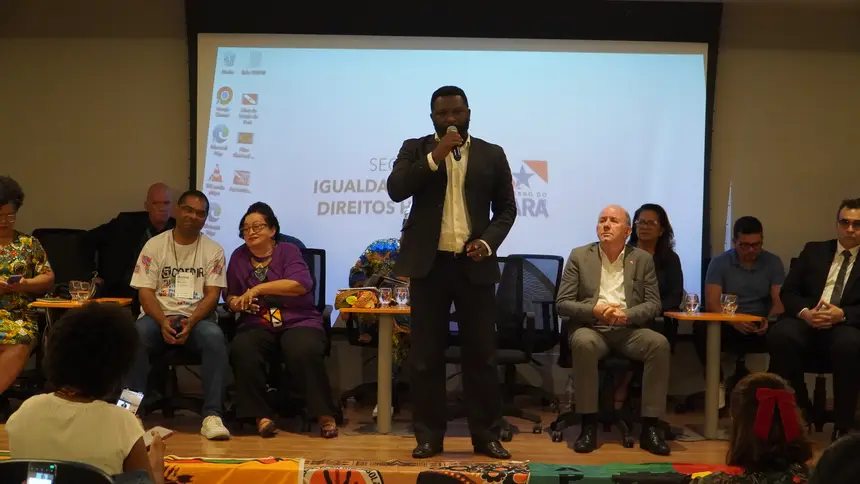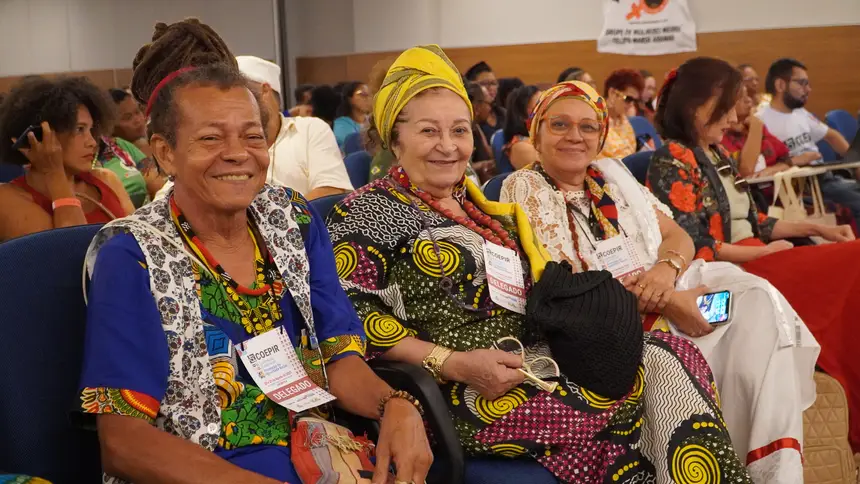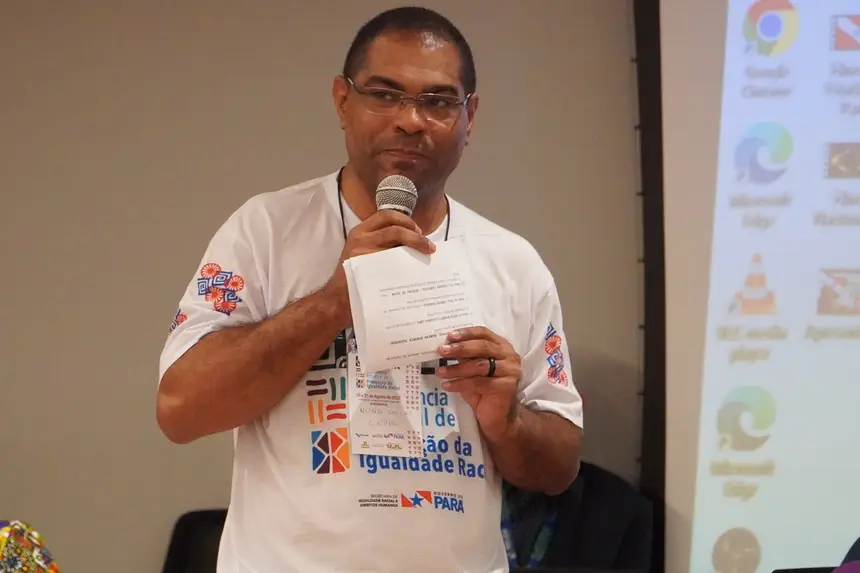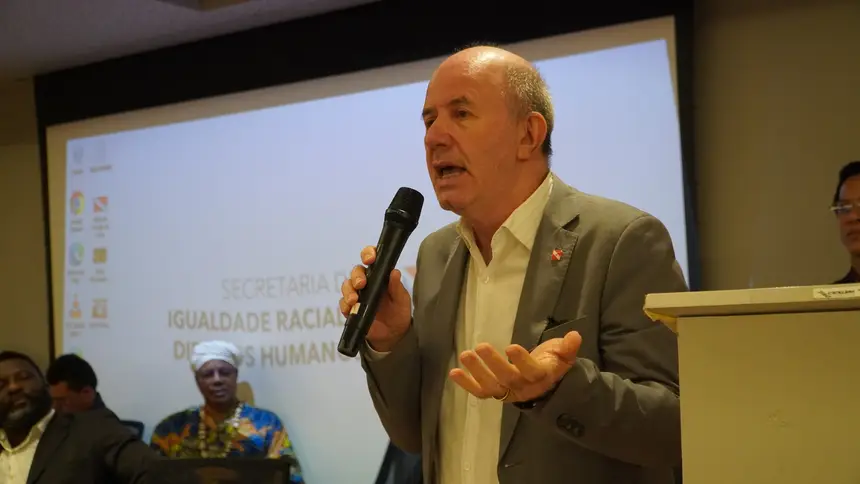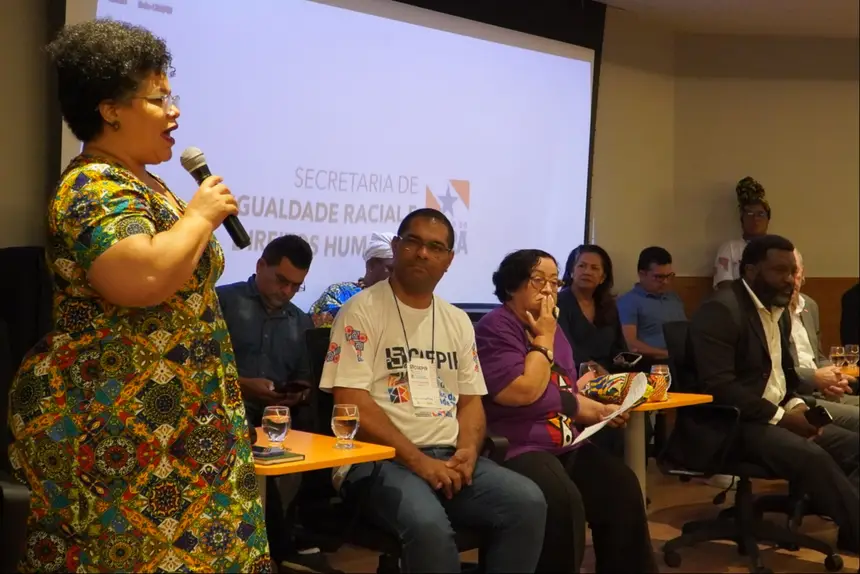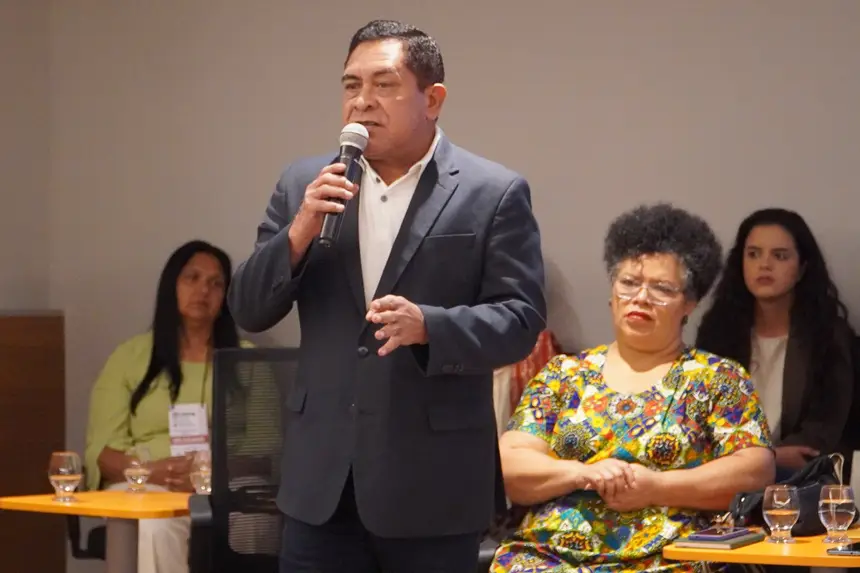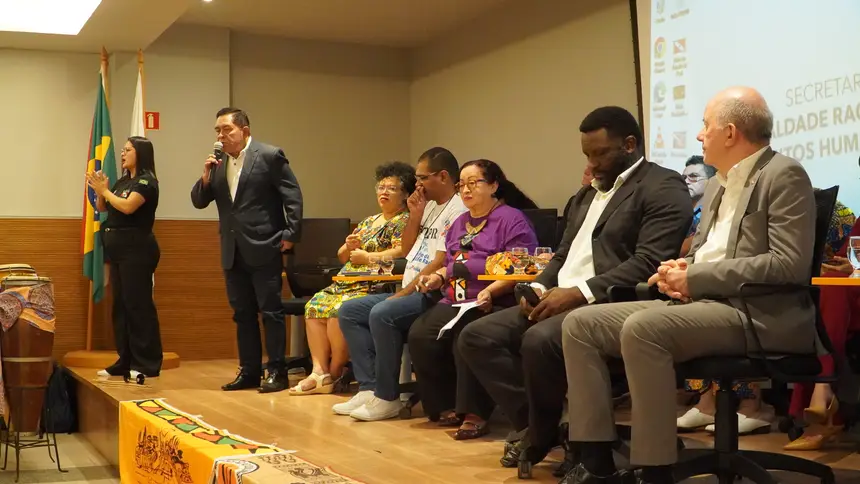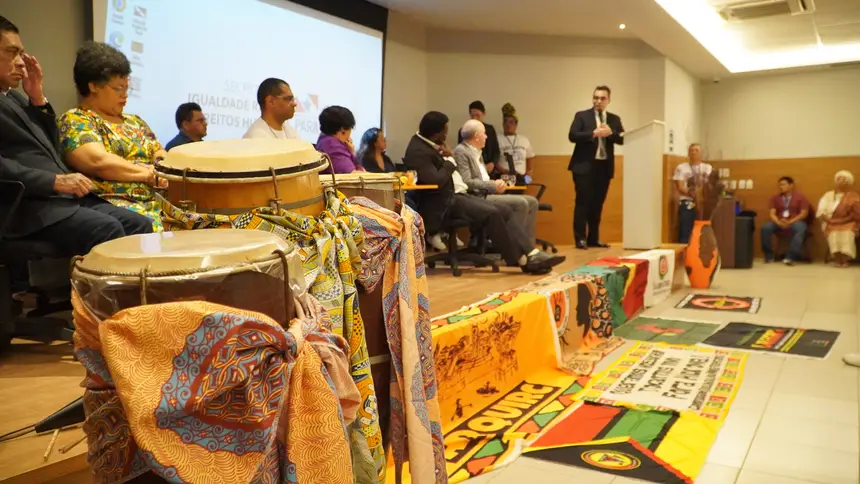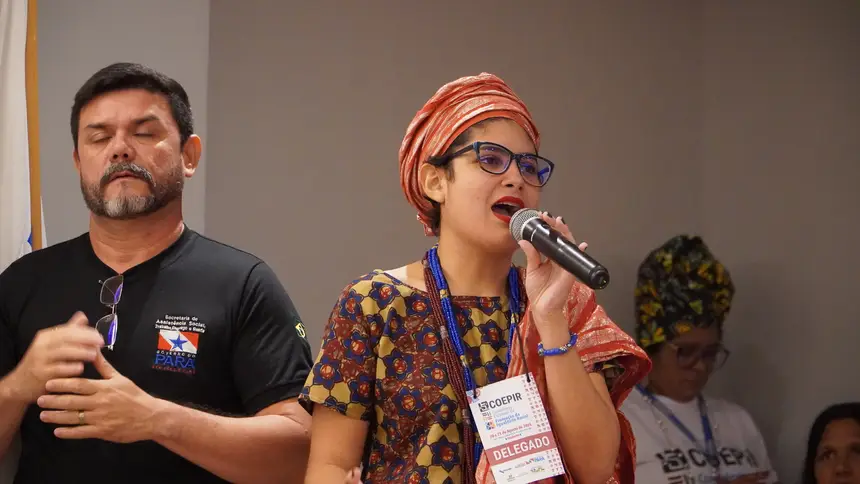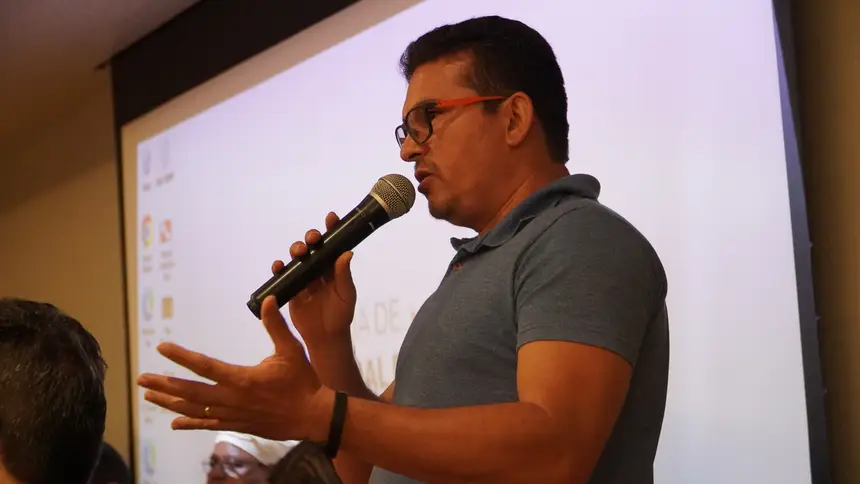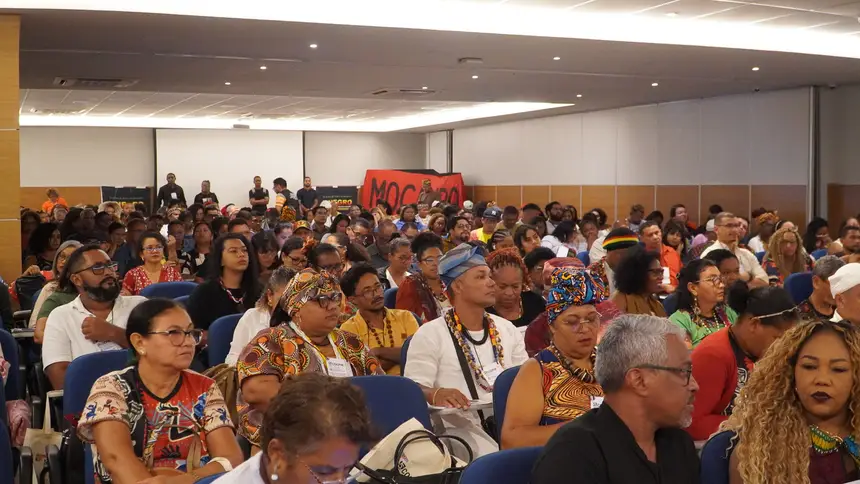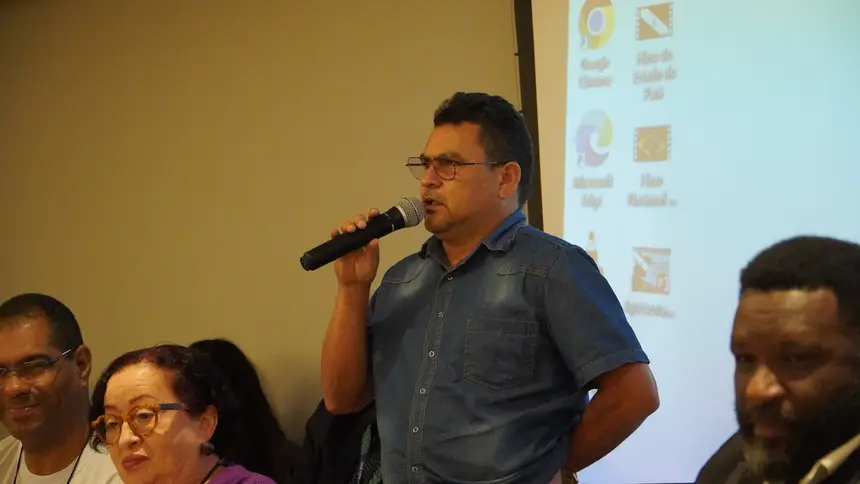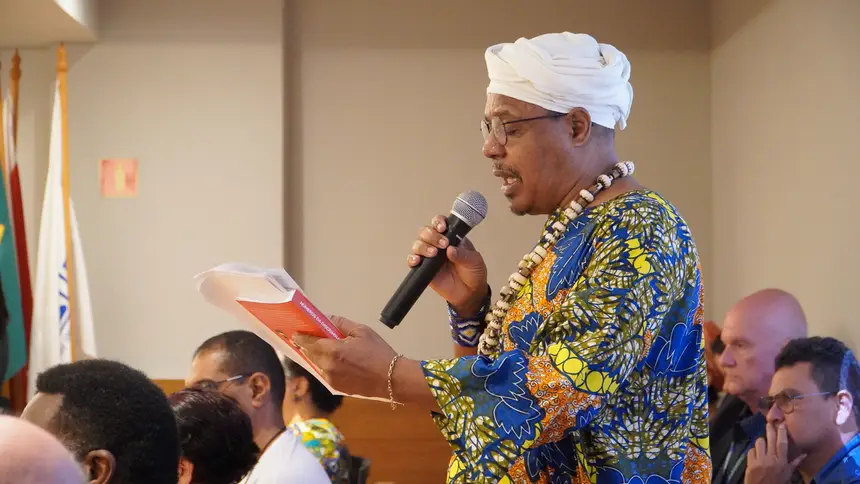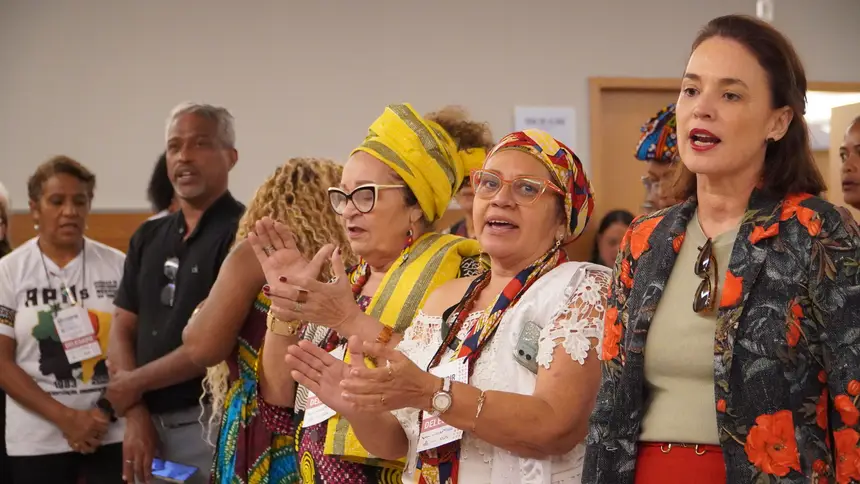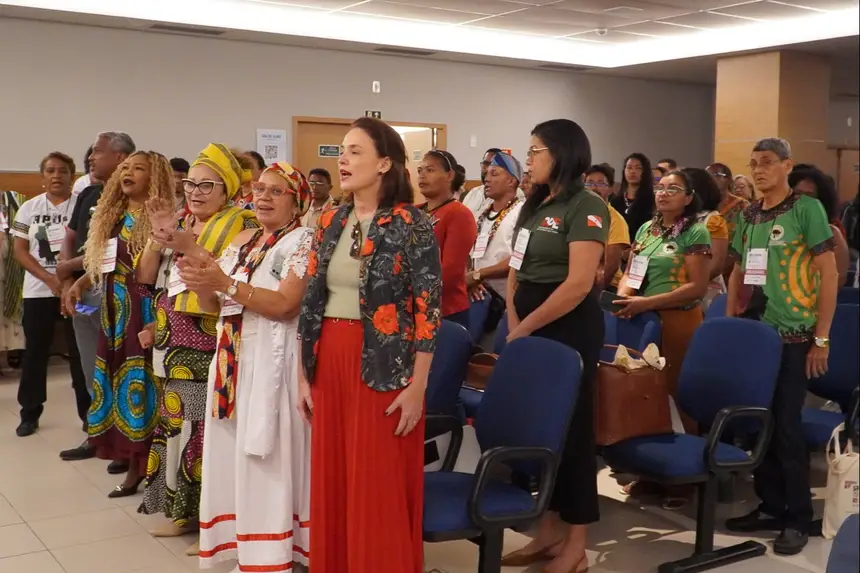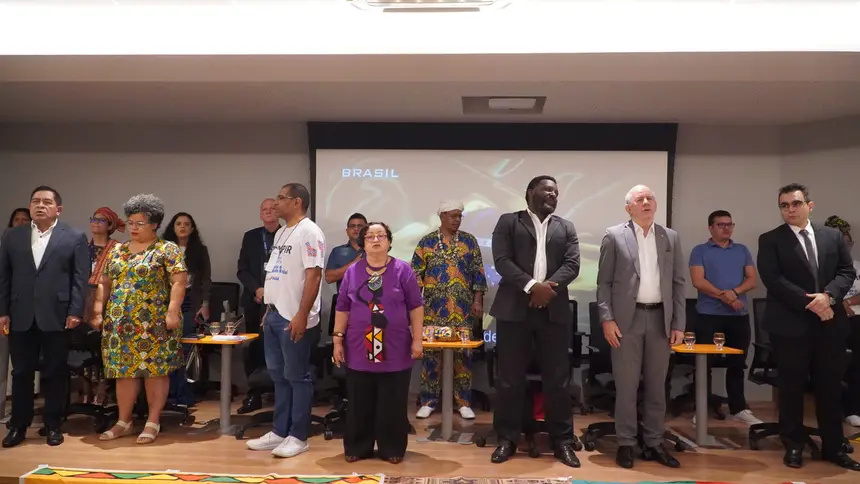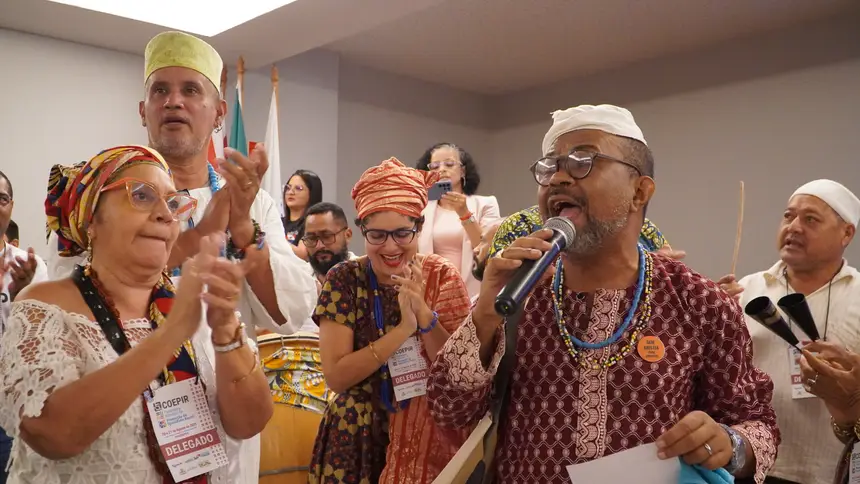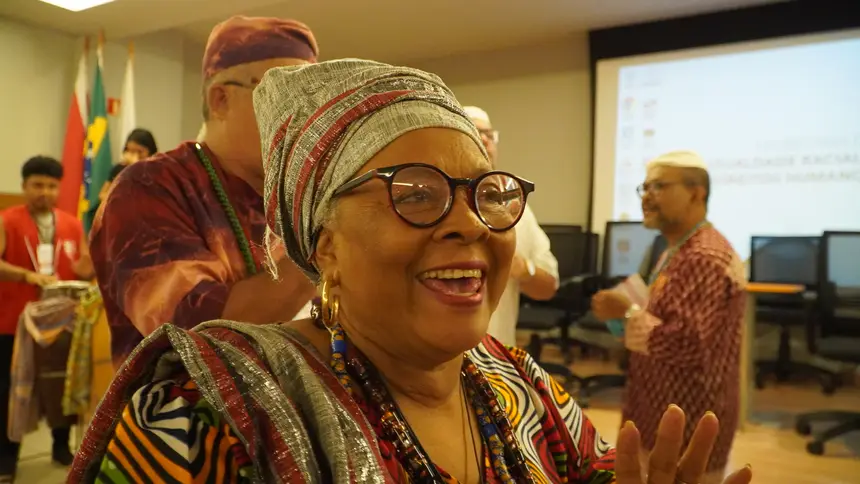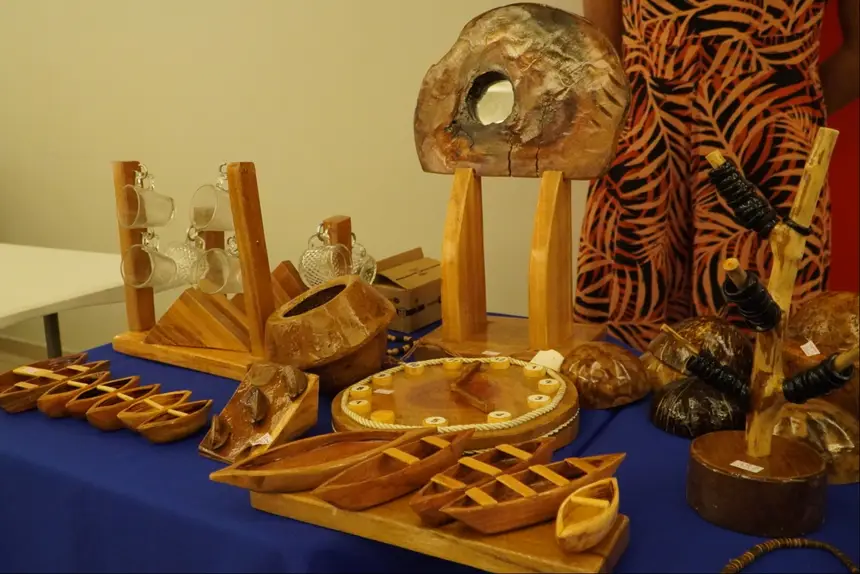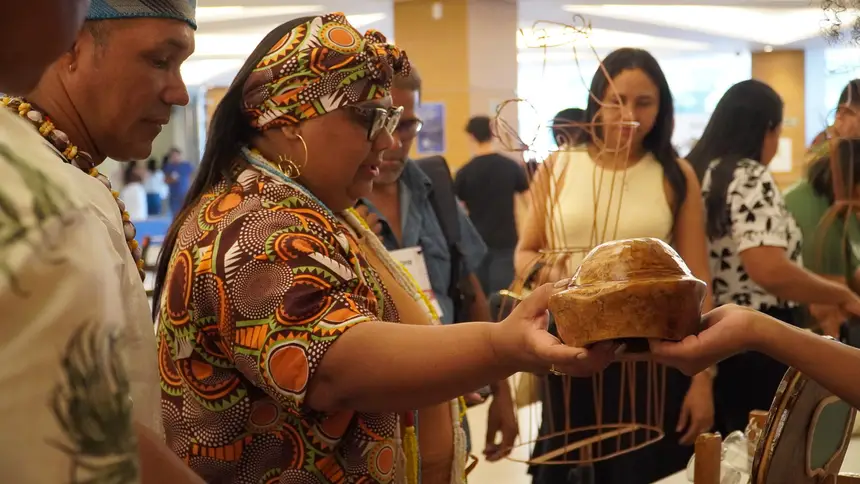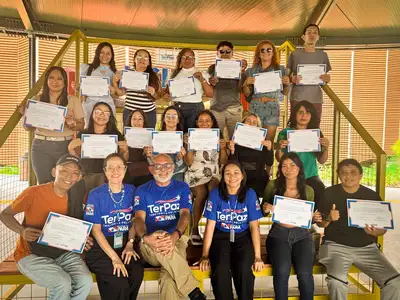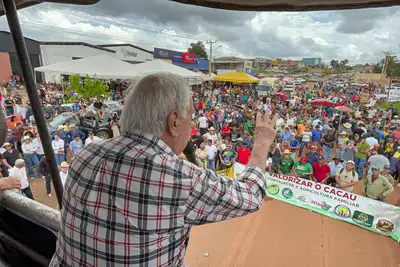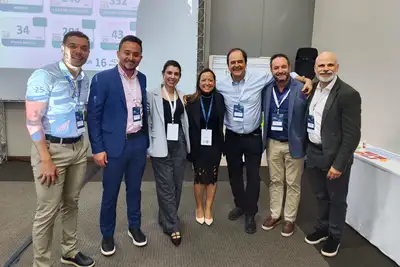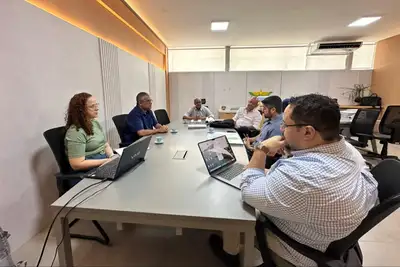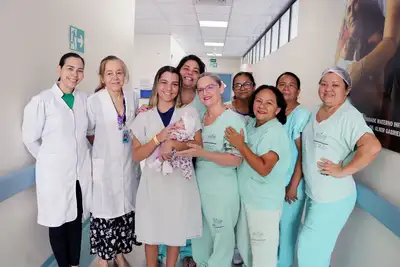Ancestry and lectures open the 5th Conference on the Promotion of Racial Equality
Event brings together representatives from civil society and state public bodies for discussions on racial justice and the proposal of public policies
The Government of Pará, through the State Secretariat for Racial Equality and Human Rights (Seirdh), began, on the morning of this Wednesday, the 20th, the 5th State Conference on the Promotion of Racial Equality, which will be held until this Thursday, the 21st, at Cesupa - Alcindo Cacela II Campus, in Belém.
The opening featured the presence of authorities and representatives from civil society to discuss the proposal of public policies with the theme "Equality and Democracy: Reparation and Racial Justice."
Representatives from the Ministry of Racial Equality (MIR), the Ministry of Human Rights and Citizenship (MDHC), the State Secretariat of Finance of Pará (Sefa), the Public Prosecutor's Office of the State of Pará (MPPA), the Human Rights Commission of the Legislative Assembly of Pará (Alepa), the State Council for the Promotion of Racial Equality, the Human Rights Secretariat of Belém, and the Associations of the Remaining Quilombola Communities of Pará (MALUNGU) participated in the Conference.
The program began with African musicality and resistance. The keynote conference was held by Professor Flávio Gomes on the theme "Structural Racism and Racial Equality Policies in Brazil." Flávio Gomes is a historian and professor at the Federal University of Rio de Janeiro (UFRJ). For decades, he has researched the existence of quilombos and mocambos in Brazil between the 18th and 19th centuries.
Next, it was the turn of Professor Jacqueline Guimarães, coordinator of the first Antiracist Committee of the Regional Council of Social Work of Pará (CRESS-PA), which strengthens the fight for racial equity in the profession and in serving Amazonian populations, who discussed the theme "Amazonian Experiences: Racial Justice and Democracy."
Closing the morning program, Roberta Sodré, coordinator of Racial Equality at Seirdh, and Domingos Conceição, sociologist and researcher, addressed the theme "The State of Pará and the Constitution of Racial Equality Policies."
Among the authorities present was Ronaldo dos Santos, national secretary of Policies for Quilombolas, Peoples, and Traditional Communities of African Matrix, Terreiro Peoples, and Gypsies of the Ministry of Racial Equality. He emphasized the importance of Pará hosting the conference.
"Pará is a very important state for all of us. Belém is an important city; in fact, it is the city of COP30. This conference is fundamental for the historical moment we are living, affirming the importance, the needs, and the agendas to combat racism, combat for the operation of racism, and promote racial equality," said Ronaldo dos Santos.
The president of the Brazilian Bar Association - Pará Section (OAB/PA), Sávio Barreto, highlighted that the discussions are, above all, about human rights. "The discussion is about all the values enshrined in our constitution, about all the struggles that OAB/PA defends and that society must also defend. Human rights undoubtedly fight for the dignity of people and, above all, for those we call vulnerable groups, such as blacks, women, and riverside communities. It is of utmost importance to hold an event where leaders will discuss essential services such as health, education, and public safety."
State Deputy Carlos Bordalo (PT), president of the Human Rights Commission of the Legislative Assembly of Pará (Alepa), emphasized that groups of activists, militants, social movements, and the state government are working on the construction of public policy to combat racism, affirming quilombola territories and consolidating representation councils for communities.
"The state conference is the affirmation of this process. It is neither the beginning nor the end; it is a stage of public policy. We already have very positive records of this public policy, the recognition of quilombola territories has greatly increased, many public schools in Pará are developing dynamics and specific subjects for presenting black culture, the significance of black people in Pará society, and we have several popular education projects being implemented in the State," evaluated Bordalo.
For the head of Seirdh, Edilza Fontes, it is a moment of consolidating demands with the State. "It is a moment of proposition as the black, quilombola, indigenous, gypsy, and traditional communities of African matrix population. We enable dialogue with the public power for the proposal of public policies," she commented.
Program - The program continues in the afternoon of this Wednesday. Starting at 2 PM, Working Groups (GTs) will be formed based on three axes for the elaboration of proposals for voting. Delegates will divide to work together.
On this Thursday, the 21st, there will be a vote on the proposals developed by the Working Groups (GTs) and the election of delegates for the national stage scheduled to take place between September 15 and 19, in Brasília (DF).
State Conference - The 5th State Conference on the Promotion of Racial Equality takes place after the holding of 24 municipal conferences that had the support of the Government of Pará and the State Council for the Promotion of Racial Equality (Coneppir).


